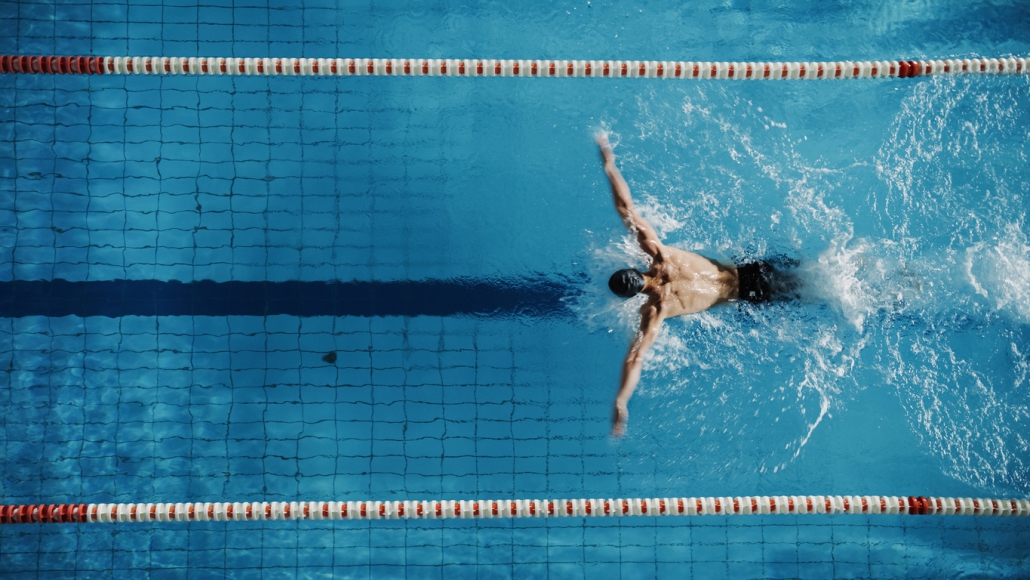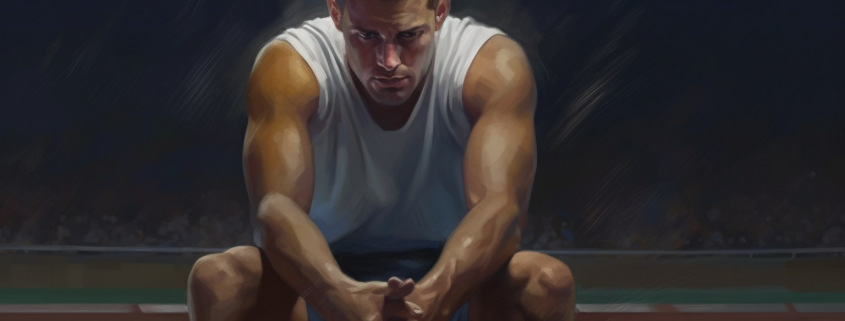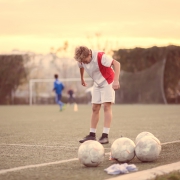How to Overcome Failure in Sports
“It’s always tough when you lose – you’ve worked so hard for that moment, and it hasn’t gone the way you wanted. But you have to realize there’s always a bright side; you have to pick yourself up and get ready for the next game.” – Maria Sharapova.
Nobody likes to fail, but failure is an essential ingredient for success. For every winner, there are countless losers. And that’s just the way that sport works. But with each loss is an opportunity to get better, to improve, and to try again.
Instead of seeing failure as the be-all and end-all, reframe it as an opportunity to improve. The best athletes all have failures, from the great Michael Jordan to Babe Ruth and Stan Smith.
This blog post will provide advice on overcoming failure in sports — how to reframe losing into a powerful tool to help you improve.

How do you deal with failure in sports?
Dealing with failure in sports is all about embracing setbacks, analyzing your performance, and finding opportunities to learn from losing, whether you lost as an individual or a team.
Below are five ways to overcome failure as an athlete.
1. Set other goals aside from winning
It’s no secret that every athlete wants to win — they want to become the best. However, obsessing over winning is often not the best approach. You should also set your own goals as an athlete. This will help you progress even when losing and ensures you’ve always got something to work towards.
For example, while your team’s main goal could be to win the season, you could have smaller goals to win a set number of tackles, improve your sprint performance, dribbling technique, and so on.
There are always smaller goals to achieve that help move the needle in the right direction (i.e., a successful performance).
It’s all about finding a balance between winning and making progress. Because ultimately, progress (and becoming a better athlete) is more important!

2. Embrace setbacks and learn from your mistakes
We all fail at some point or another. Maybe you kicked too early in a race, shot from a freekick instead of passing to your teammate, or perhaps your team was relegated. Instead of wallowing in defeat, embrace setbacks and learn from your mistakes.
If you know something went wrong, analyze what it was and learn from it. Then, do your best to make sure it doesn’t happen again.
This applies to both the athlete and the coach — you can both identify things you could do better (as an individual and a team) and work on these to improve.
“I have failed many times, but I have never gone into a game expecting myself to fail.” – Michael Jordan.
3. Analyze your performance
Once the whistle has blown, the game is over. Right? Wrong! If you fail, you should analyze your performance. Understand what went well, but more importantly, what didn’t go so well.
And while it’s easier to say the other team was “better” or “stronger,” there’s always something you could have done better.
Be brutally honest and find areas of your game that you can improve. You only stand to lose potential if you can’t look at your performance through a candid lens. You can also work with your coach to find key areas to focus on.
And if you have access to a recording of your performance, then you can rewatch it, take notes, and see what you could have done differently. Again, the key here is not to feel sorry for yourself — but to find ways to improve.

4. Don’t be afraid to fail
We grow up in a society where failure is perceived as “bad.” You fail a math test or a driving test, or you don’t make it onto the team, and by society’s standards, you fail. But we are rarely told that it’s okay to fail and that we shouldn’t be afraid of failure.
Failure is how we improve; it’s how we get better.
But don’t just hear it from us; here’s what Billie Jean King, the former number 1 American professional tennis player, said about failure:
“Champions keep playing until they get it right.”
As long as you use failure as an opportunity to get better — and actually do so — then you will improve. And then you try and try again.
5. Control what you can and worry less about what you can’t
While the attitude “it is what it is” will only get you so far, to some extent, it’s true. Once you’ve done everything you can to change an outcome, worry less about what’s next.
Control what you can, and don’t worry about what you can’t control. For example, you can control your preparation for an event — such as your training and mindset preparation — but you can’t control what your teammates or the other teams do.
Focus on what you can, and worry less about what you can’t.

How to overcome failure: to summarize
To overcome failure in sports, you must accept and own it. See failure as an opportunity to improve — even if your team lost, and it was no fault of your own, there are no doubt areas of your game you can improve.
Focus on what you can control, and worry less about what you can’t.
Key takeaways:
- Reframe failure as an opportunity to improve
- Set individual goals other than winning to improve
- Analyze what went wrong and where you can improve
FAQs
Why is failure important in sports?
Failure builds character and teaches athletes how to deal with adversity. And when used correctly, it showcases areas of their game that can be improved.
How does failure lead to success in sports?
Losing in sports provides an opportunity to improve. When you fail, you unveil a skill you can improve. Focus on these weaknesses, and you’re more likely to succeed next time.
What is the importance of failure in sports?
Failure in sports is an essential part of the game. It teaches you how to deal with adversity and can reveal weaknesses in your game. Use failure as an opportunity to improve, and you will inevitably become better.












